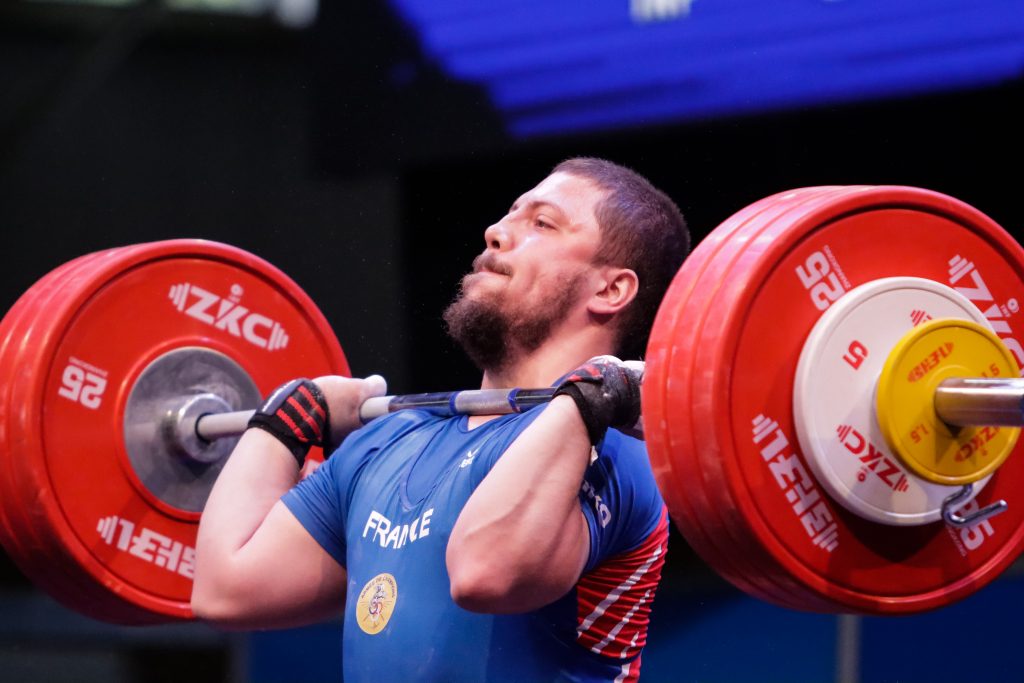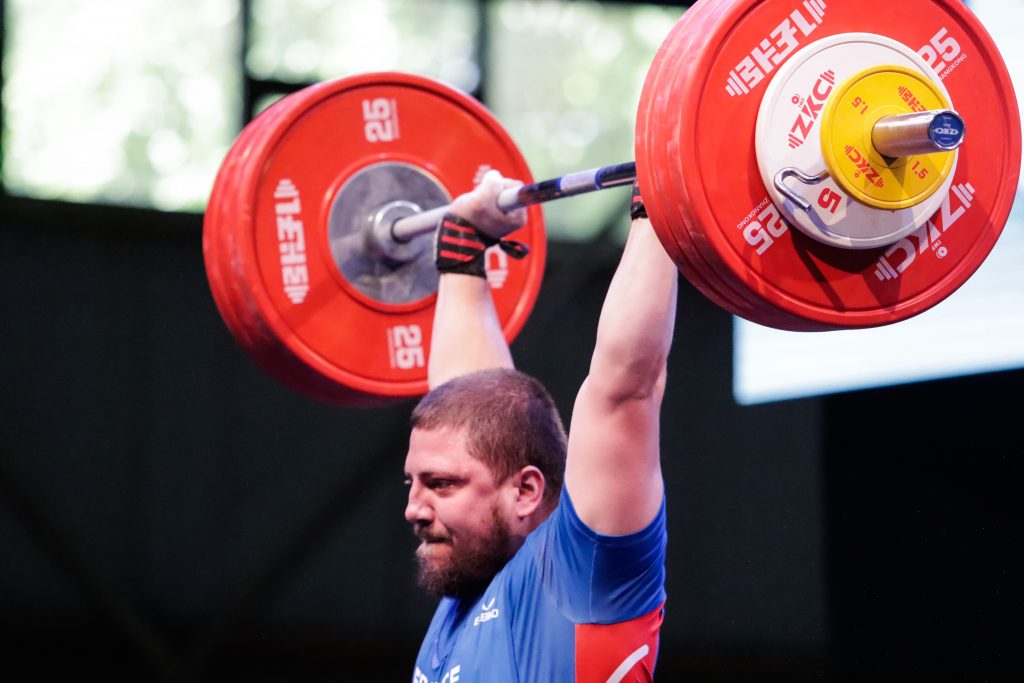Brandon Vautard (FRA): “All the eyes will be on the French athletes during the Games!”
“Yes, there is undeniably an additional responsibility on the French athletes”. Brandon Vautard hesitates before replying, but the answer then comes fast. The 2024 Olympic Games, to be held in about 13 months in Paris, should be the career pinnacle of the French athletes. Weightlifting is no exception. “All the eyes will be on us, the French delegation. We must be up to the task,” adds the 22-year-old lifter, after getting two medals on the eighth day of the IWF Grand Prix, concluding this Sunday in Havana (CUB).
Competing in the men’s 96kg category, Vautard got the silver in the clean and jerk with a 196kg lift and the bronze in total (336kg). With a personal best of 150-200-350, recently achieved in France, he knows that he needs to dramatically improve to dream of a Games’ place in Paris. Usually competing in the Olympic 89kg category, Vautard admits that we will be back to that group in time for the IWF World Championships next September in Riyadh (KSA).
 Brandon Vautard (FRA)
Brandon Vautard (FRA)
If the cut of 385kg in the 102kg category seems unachievable, the 10th-place score in the 89kg is around 365kg. “I hope I can make it. I feel in good physical shape and I have good conditions to progress”. Enrolled in the French army, Vautard dedicates his medals to all the “brave French soldiers who are serving the country” and explains that his duties facilitate his weightlifting training. “Both from a physical perspective and in terms of available time, the army is the perfect environment to proceed with my Olympic preparation”.
In a career that spanned internationally since 2011, Vautard achieves his best-ever result in 2018, when he gets the European bronze in 85kg, at the time with 144-191-335. “Coming to Cuba, my goal was to achieve at least 355kg. In terms of weight, I couldn’t get it, but I got two medals as a consolation. It was a good start in my Olympic path and it gives me confidence for the upcoming competitions”.
Starting at the age of nine in a club, the French lifter had the “physical morphology” to practice the sport. “I knew another kid that was also doing it, and it came like that. I got hooked, and many years later, I am still here. During my first domestic competitions, my coach kept saying I could be a good lifter, so I trusted him and I continued to work hard”.

Presently training at the INSEP in Paris (where the French national teams are getting prepared), Vautard admits that the daily routine is hard but necessary. Reflecting on the overall level of French weightlifting, he is quite optimistic. “We are getting better and we have the conditions to be at the top of the world hierarchy”.
In order to progress faster, and with the active support of the French Embassy in China, seven lifters went on an exchange programme for 20 days in Wuzhishan last February. The idea was to share experiences with the strongest nation in the weightlifting world and to benefit from their successful strategy. “We were of course very happy to be there and to see how they train and prepare. There was a very strong group with us, including Olympic and world champions. This was really beneficial for the French team,” Vautard recalls. Asked about the differences in terms of intensity and quality of Chinese training when compared with the French preparation, he smiles and recognises: “We had no chances against them… They are clearly above the field and their training programme is outstanding. It was a very rich experience for us!” The idea is now to invite Chinese lifters to France so that this co-operation programme can continue bringing positive results for the two teams.
At present, the Olympic qualification for France is more successful in the women’s field, with Dora Tchakounte being 10th in the 59kg and Marie Josephe Fegue sixth in both the 71kg and 81kg categories. Among men, a direct qualification is so far distant, but in accordance with the Olympic Qualification System, the host country of the Games has four guaranteed places – two among men and two among women.
By Pedro Adrega, IWF Communications










